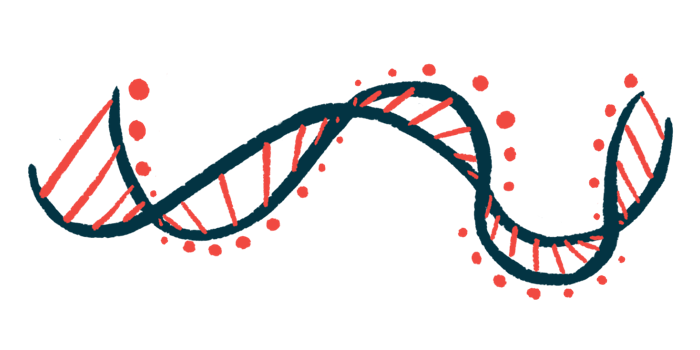Genetic Testing IDs 2 Gene Mutations in Woman, 49, With Signs of aHUS

Genetic testing was used to identify predisposing gene mutations in a Korean woman with clinical signs of atypical hemolytic uremic syndrome (aHUS), according to a recent case report.
“Patients with hereditary aHUS experience recurrent relapse even after complete recovery from the presenting episode, and about two-thirds of them progress to end-stage renal disease. Thus, … gene mutation analyses … could be useful for predicting the risk of aHUS,” the researchers wrote.
The case report, “Copy number variation analysis using next-generation sequencing identifies the CFHR3/CFHR1 deletion in atypical hemolytic uremic syndrome: a case report,” was published in the journal Hematology.
aHUS is caused by a dysfunction in the complement system, which is part of the body’s immune system. It is characterized by red blood cell destruction, called hemolytic anemia, low platelet counts (thrombocytopenia), and kidney failure caused by the accumulation of blood clots in small blood vessels of the kidneys and other organs.
The rare disorder often arises due to predisposing mutations in genes that regulate the function of the complement cascade. Yet, the presence of these mutations alone is not usually sufficient to trigger the onset of aHUS. In most cases, a triggering event, such as an infection or pregnancy, is necessary to induce the disease.
Now, researchers in Korea described how genetic testing was used to identify predisposing genetic alterations in a 49-year-old woman showing clinical signs of aHUS.
The woman previously was healthy and had no history of infections or underlying problems, apart from being born with a single kidney. She was admitted to the hospital with ongoing generalized weakness, fever, and weight loss, and also had fluid retention in her legs, and red spots on her abdomen.
Her lab results showed signs of kidney injury and elevated lactate dehydrogenase. Lactate dehydrogenase is a marker of red blood cell destruction and tissue injury. The patient also had immature red blood cell counts, with decreased red and white blood cell counts.
She also had low C3 levels and a high risk of blood clots, as evidenced by a positive lupus anticoagulant test. Examination of her blood revealed the presence of red blood cell fragments (schistocytes) and significantly decreased platelet counts.
Doctors diagnosed her with aHUS after confirming that the activity levels of the enzyme ADAMTS13 were within a normal range, her stool tested negative for Shiga toxin-producing E.Coli, and she had no history of bloody diarrhea. Of note, these tests are usually performed to rule out other conditions that can cause symptoms similar to those of aHUS.
Despite being treated with plasma exchange therapy, steroids, and rituximab, the woman’s kidney dysfunction persisted, as did her low platelet counts.
Doctors then applied for approval from the Korean government to treat the patient with Soliris (eculizumab), a complement inhibitor that has been approved to treat aHUS in several countries. However, the needed approval was delayed, and the patient ultimately died from multi-organ failure.
Researchers performed genetic tests to determine if the woman’s aHUS had a genetic basis. Two such testing tools were used: copy number variation (CNV) analysis and multiplex ligation-dependent probe amplification (MLPA).
The results led the team to identify deletions in two complement-associated genes, called CFHR1 and CFHR3. The patient was thus diagnosed with hereditary aHUS caused by CFHR3/CFHR1 deletion.
“We genetically diagnosed a Korean woman harboring a heterozygous CFHR3/CFHR1 deletion, which is a known causative gene for aHUS,” the researchers wrote.
“Our report emphasizes the need to complete CNV analysis … and gene dosage assays, such as MLPA, to evaluate large-scale deletions or duplications and generate hybrid CFH genes in patients with suspected aHUS,” they concluded.







